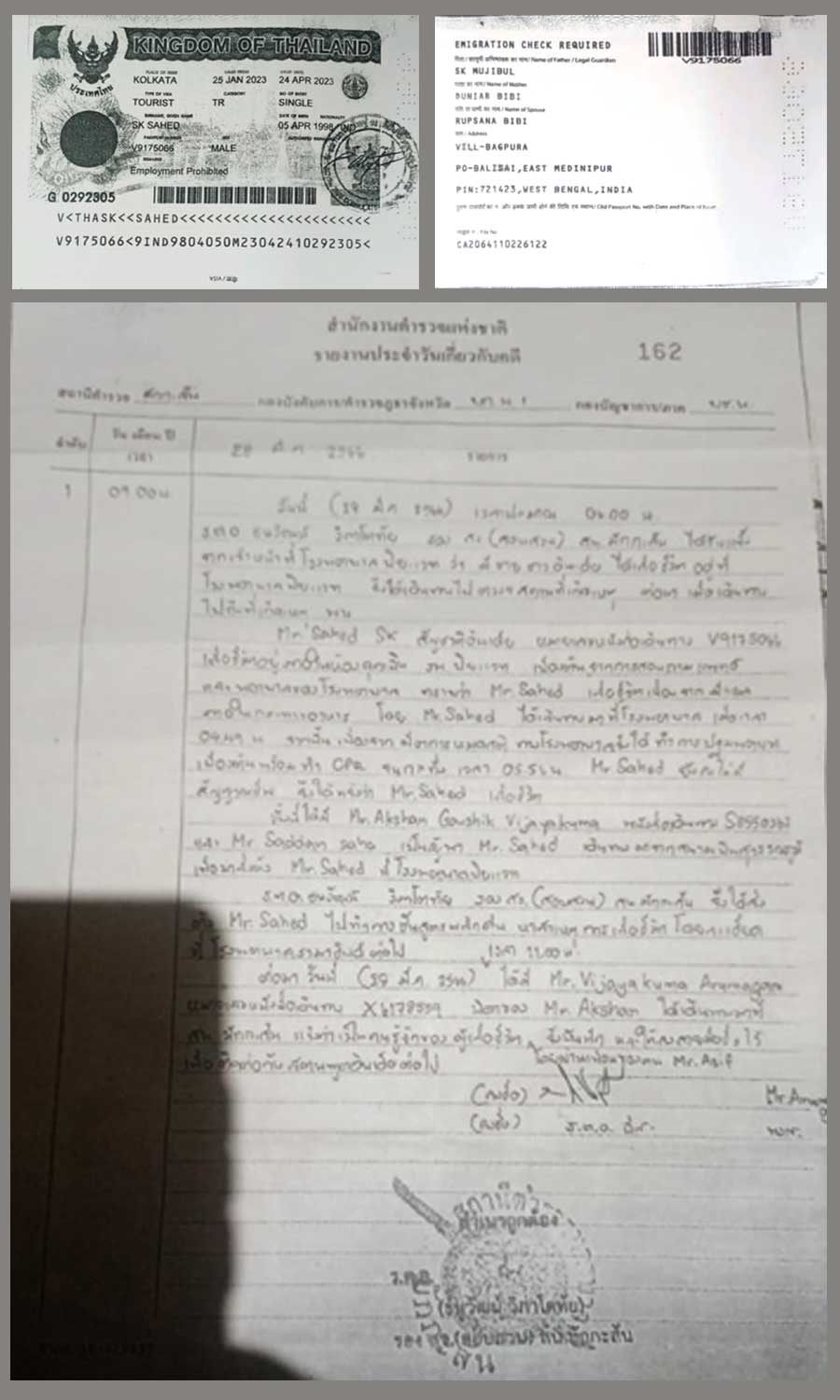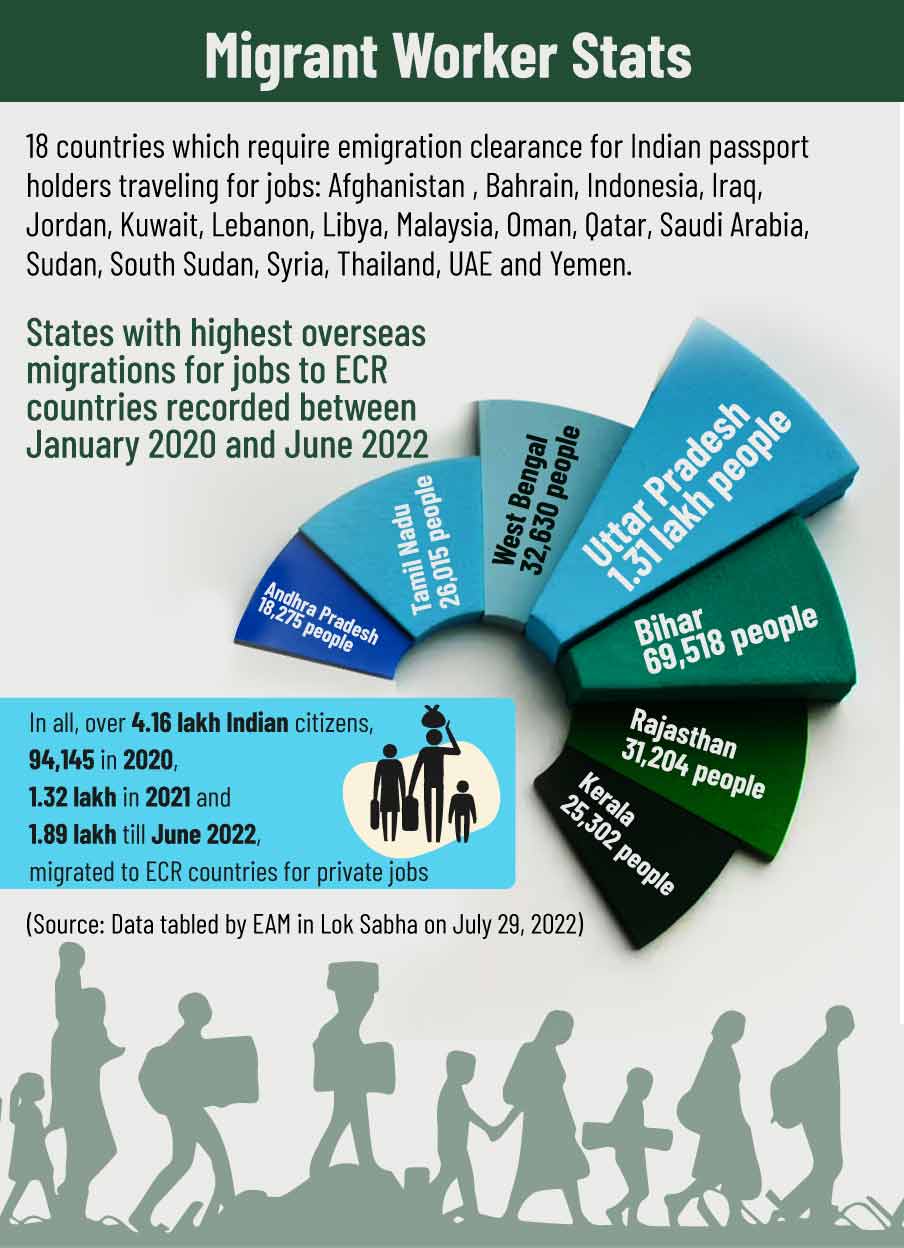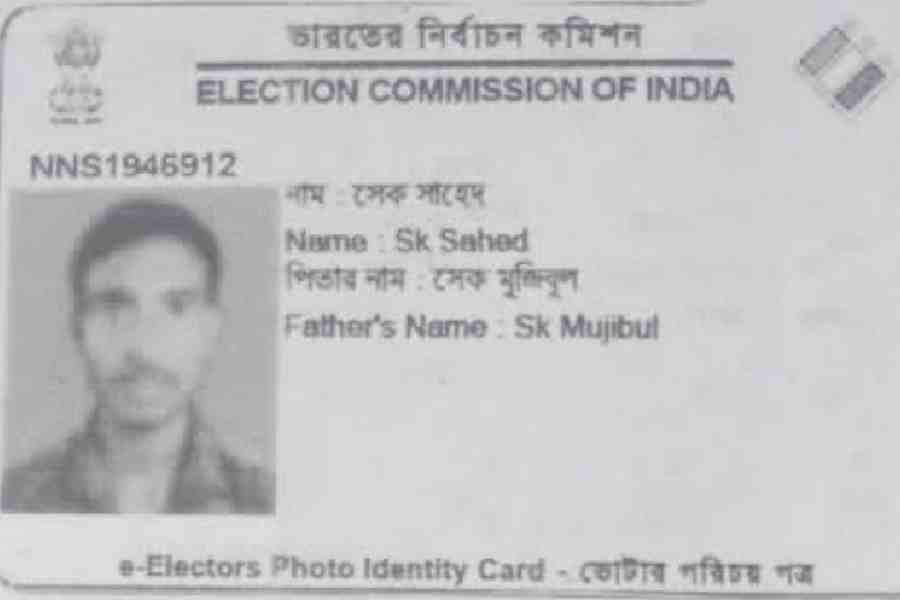Sheikh Sahed, a 27-year-old migrant worker from Bagpura village in the Ramnagar Police Station area of Bengal’s East Midnapore district, breathed his last in Bangkok on March 28. But for the past month, Sahed’s body is languishing in a morgue in Thailand, some 3,500 km away from his home, since the family does not have the $ 2,600 to bring back his remains.
The family doesn’t even have Sahed’s formal death certificate. All it has is a letter (written in Thai) that says Sahed’s body is now preserved at Bangkok’s Ramathibodi Hospital and that an autopsy performed found that he died of a liver infection. The communication from Thai authorities states that records of Consular activities are updated daily at the local Makkasan police station in Bangkok. But that’s where things have remained at a standstill for Sahed’s impoverished family in Ranmagar.
Complications over Sahed’s visa status, the insatiable greed of agents who transported him to Bangkok in the first place and alleged lukewarm response from local political leaders have only added to the anguish of the family that continues to stare at uncertainty over bringing the worker’s body back.
Sahed's relatives allege that repeated appeals before the Pradhan and Deputy Pradhan of the local Bepal gram panchayat, local MLA Akhil Giri, Leader of Opposition Suvendu Adhikari, Ministry of External Affairs and the Bengal Governor’s office have either fallen on deaf ears or elicited mere assurances.
It’s only now, after a month has passed, that local MP Sisir Adhikari confirmed to The Telegraph Online that his efforts of taking up the matter with the MEA are likely to bring about some positive action from the Union government soon.

(Top) Sk Sahed's Thai tourist visa; (below) Communication from Thai authorities to Sahed's family informing about his death and the location of his body Telegraph picture
While the local panchayat and the assembly seat are held by the Trinamul Congress, the Adhikari father-son duo are in the BJP camp, although the senior Adhikari, Sisir, is yet to officially defect from the Trinamul.
Meanwhile, less than a month after his passing, Sahed’s Thai tourist visa expired on April 24.
Back home at the Barenga village in Ramnagar where he lived with his in-laws, Sahed was a daily wage earner who loaded and unloaded stuff at the local market. That’s how he supported his wife, Rupsana Bibi, and two children – a six-year-old daughter and a two-and-half-year-old son.
“Sahed was lured by local recruiting agents, Sk Lalchand and Sk Asif, with the promise of a monthly salary of Rs 50,000 to work as a cook at a Bangkok restaurant,” Joynal Saha, Sahed’s father-in-law, told The Telegraph Online. “He reached Bangkok on March 2 and showed up for work three days later only to find himself merely chopping vegetables,” he added.
“On March 27, Sahed called from Bangkok complaining of stomach ache. He was crying bitterly and wanted to come back. But that wasn’t an option for him since he had already sold off his wife’s ornaments to pay Rs 1.5 lakh for a visa and airline ticket,” Saha said.
“Later we received a call from an Indian friend who said that my son-in-law was admitted to a local hospital. His employers also suppressed his employment status and admitted him to the hospital saying he had come to eat at the restaurant,” the relative alleged.
A day later, on March 28, the two agents called the family to say that Sahed had died.
But for his family back home, the ordeal had only just begun.
“Asif was in Thailand and called me to transfer Rs 10,000 to his bank account so that he could bring back the body. I collected the amount from neighbours and relatives and sent it to him. He then called back and asked for Rs 3 lakh more. It was like the sky fell on our heads. Where will we get that kind of money from? We told him there was no way we could send him that amount,” Saha said.
“Both agents have stopped taking our calls since then. Asif is back in the village and moving around right before our eyes while Sahed’s body remains in a morgue in Bangkok,” he said and broke down sobbing.
“We have repeatedly knocked on the doors of the local Pradhan Anup Maiti and his deputy Tapas Kanti Dutta for the last 20 days. The Pradhan has now forbidden us from visiting him and his deputy says he will let us know when there is news to share. We are fast losing hope,” added Saha, who has lost his ability to work and fend for the family on account of his advanced age.

Emails to the Indian Embassy in Bangkok and Thailand’s consulate in Calcutta elicited the standard response and identified a company that can repatriate Sahed’s remains for $2,600.
“Sahed’s ordeal shows there is no institutional mechanism to ensure the safety and security of low-skilled – often migrant – workers that make up the bulk of India’s labour force,” said Sourav Sen, a political analyst and writer with research expertise on migrant workers and human trafficking.
“The COVID-19 lockdown saw millions of such workers walking thousands of miles to escape being stranded in their workplace to the safety of their homes. Most could not afford the exorbitant bus or train fares. Neither did they have the savings to stay back at their place of work. The lockdown closed down factories and these workers were without wages,” Sen added.
“The manner in which the lockdown was imposed with a four-hour notice exposed the lack of empathy of the Indian government for the migrant workforce. There was little understanding of the far-reaching impact this decision would have. The reason why it takes over a month to bring Sahed’s body back is an extension of that mindset,” the researcher explained.
MP Sisir Adhikari said: “I had taken up the matter with S Jaishankar, external affairs minister. The complication with this migrant worker is that he was given a tourist visa and not registered as a job worker in that country. As a result, his family is deprived of the compensation from the Thai government or his agents which they were supposed to receive.”
“Earlier this week I wrote to the external affairs secretary explaining that the family has no means to pay the amount which is now required to bring the body back. I have sought Union government’s intervention to do the needful and I am expecting a positive response soon,” he added.
“Sahed was defrauded on multiple counts. First, he should have been given a job worker visa instead of a tourist visa. Secondly, he was not given the job he was promised, that of a cook. He wasn’t paid the salary promised to him. This is a classic case of human trafficking since there’s deception involved,” Sen explained while stating that owing to a lack of awareness and education, thousands of overseas migrant workers from India meet a similar fate once they reach their destination.
None of that matters to Sahed anymore. Like millions of migrant coworkers from this country, Sahed is stuck in a land far away from home – a place where he cannot even walk back from.











